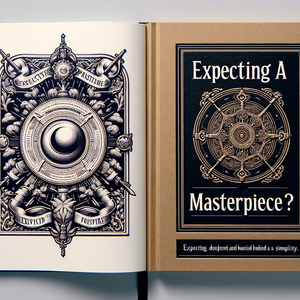The Art of Minimalism: Jack Dorsey’s Unique Business Philosophy

At the heart of Dorsey’s business philosophy lies the mantra that "less is more." This principle is vividly illustrated in the design and functionality of Twitter, which emphasizes brevity and clarity. Launched in 2006, Twitter initially imposed a 140-character limit (later expanded to 280), compelling users to condense their thoughts into succinct messages. This minimalist ethos fostered a culture of direct communication and engagement, enabling Twitter to stand out amidst a crowded landscape of social media platforms that often prioritized complexity and feature overload. Dorsey’s commitment to simplicity transcends product design and extends into his leadership style and decision-making processes. He advocates for a focus on core goals while avoiding distractions, a philosophy that resonates deeply with many entrepreneurs. By prioritizing essential tasks and encouraging innovation without the weight of unnecessary complexity, Dorsey has cultivated an environment conducive to creativity and productivity, allowing his companies to thrive.
Impact on Financial Technology
Dorsey’s minimalist philosophy is equally evident in his fintech venture, Square, which he co-founded in 2009. Square revolutionized the digital payment landscape by offering a straightforward mobile payment solution tailored for small businesses. With its user-friendly card reader and intuitive interface, Square dismantled the barriers that many entrepreneurs faced when accepting credit card payments. This focus on simplicity not only made transactions more accessible but also empowered countless small business owners, thereby democratizing commerce. The success of Square can be attributed to Dorsey’s unwavering dedication to understanding user needs. By eliminating extraneous features and concentrating on what customers truly required, Square rapidly gained a substantial market share, achieving a valuation exceeding $100 billion by 2021. This trajectory underscores how a minimalist approach can yield innovative, user-centric solutions that resonate with consumers, creating a mutually beneficial scenario for businesses and their customers.
Personal Life and Broader Influence
Beyond his business ventures, Dorsey’s minimalist philosophy extends into his personal life. Known for his disciplined routines, which include regular meditation and a focus on wellness, Dorsey embodies the belief that simplicity enhances productivity and clarity. By minimizing distractions and fostering mindfulness, he positions himself to make informed decisions, both personally and professionally. Moreover, Dorsey’s approach has sparked a broader movement within the tech industry. Many startups and entrepreneurs are now adopting similar minimalist principles, recognizing the inherent value of simplicity in a world often overwhelmed by complexity. This shift has not only influenced product design but has also reshaped corporate culture, leading to more agile and responsive organizations that prioritize clarity and focus.
Jack Dorsey’s distinctive business philosophy of minimalism has been instrumental in his journey as an entrepreneur. By embracing simplicity and concentrating on the essential elements of his ventures, he has transformed both Twitter and Square into formidable forces within their respective industries. Dorsey’s approach serves as a powerful reminder that in the pursuit of success, clarity and focus can be far more effective than complexity. As the tech landscape continues to evolve, Dorsey’s minimalist philosophy will undoubtedly inspire future generations of entrepreneurs to seek simplicity in their own endeavors, paving the way for innovation and sustainable growth. In a world where complexity often reigns, Dorsey’s success story stands as a testament to the art of minimalism in business.
User Experience (UX) Designer - Fintech
Square, PayPal, Stripe
Core Responsibilities
Design intuitive and user-friendly interfaces for digital payment platforms, ensuring seamless user interactions.
Conduct user research and usability testing to gather insights and iterate on design concepts.
Required Skills
Proficiency in design tools such as Sketch, Figma, or Adobe XD.
Strong understanding of user-centered design principles and accessibility standards.
Product Manager - Digital Payments
Square, PayPal, Visa
Core Responsibilities
Define product vision and strategy for payment solutions, aligning with business goals and user needs.
Collaborate with cross-functional teams including engineering, design, and marketing to launch and improve products.
Required Skills
Experience with Agile methodologies and tools (e.g., JIRA, Trello).
Strong analytical skills with the ability to interpret data and market trends.
Software Engineer - Mobile Payment Solutions
Square, Venmo, Cash App
Core Responsibilities
Develop and maintain mobile applications for payment processing, focusing on performance and security.
Collaborate with UX designers to implement features that enhance user experience.
Required Skills
Proficiency in programming languages such as Swift for iOS or Kotlin for Android.
Familiarity with payment processing APIs and security protocols (e.g., PCI compliance).
Marketing Specialist - Tech Startups
Fintech startups, Square
Core Responsibilities
Create and execute marketing campaigns to promote financial technology products, focusing on user acquisition and retention.
Analyze campaign performance and adjust strategies based on data-driven insights.
Required Skills
Experience with digital marketing tools (e.g., Google Analytics, SEMrush).
Strong written and verbal communication skills, with a knack for storytelling to engage target audiences.
Business Analyst - Financial Technology
Square, Robinhood
Core Responsibilities
Analyze market trends and user data to identify opportunities for product improvements and new features.
Prepare reports and presentations to communicate findings to stakeholders.
Required Skills
Proficiency in data analysis tools (e.g., Excel, SQL).
Strong problem-solving skills and ability to translate complex data into actionable insights.


